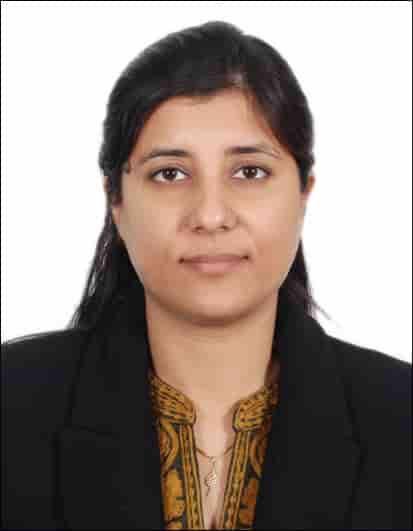Profile
Dr. Adlakha has more than 15 years of experience in the field of synthetic biology and bioprocessinh. Her early career research led to the development of technologies for the production of 2,3-Butanediol, which was upscaled to 200L. Currently, her Laboratory aims at employing synthetic biology and machine learning tools to engineer functionally improved or novel proteins. Dr. Adlakha is a leading investigator in the Indian research community working towards exploring a new coding scheme to enhance the secretion of heterologous proteins in Pichia pastoris. Her expertise lies in heterologous protein production in yeast, fungal, and bacterial systems.
Current Focus Areas
Protein engineering and immobilization Proteins are natural building blocks of all living organisms. Many natural proteins are enzymes that catalyze biochemical reactions and are essential for metabolism. We conduct interdisciplinary research in the field of protein engineering. We wish to understand and improve protein functionalities for biotechnologies.
Microbial engineering Due to concerns about energy security, sustainability, and global climate change, continuous research efforts are made to use renewable carbon source for production of chemicals and biofuels. Non-fodder cellulosic biomass, major source of carbon on earth, is generally used as precursor carbon.
Bioprocessing The goal of bioprocessing research is to obtain fundamental knowledge that will provide a foundation by which biotechnology is translated into products and technologies that define human activity: food, fuel, bioproducts, and health. T
Selected Publications
Aggarwal S, Dorairaj S, Adlakha N* (2023). Stoichiometric balance ratio of cellobiose and gentiobiose induces cellulase production in Talaromyces cellulolyticus. Biotechnol Biofuels Bioprod. 2023 Mar 16;16(1):48. doi: 10.1186/s13068-023-02296-1. Yadav K, Arora D, Jatain I, Dubey KK, Dhaka N, Kaur I, Adlakha N* (2023). Combining in silico and in vitro approaches to understand the involvement of MEP and shikimate pathway in Agrobacterium tumefaciens for enhanced CoQ10 production. J Appl Microbiol. 2023 May 9:lxad097. doi: 10.1093/jambio/lxad097. Meena K, Alam S, Dalei SK, Khare SK, Adlakha N* (2023). Continuous preparation of low-phenylalanine formulations by treatment of edible protein with immobilized phenylalanine ammonia-lyase. Process Biochemistry. Volume 131, 2023, Pages 67-76, ISSN 1359-5113. https://doi.org/10.1016/j.procbio.2023.06.004. Narisetty V, Adlakha N, Kumar Singh N, Dalei S, Prabhu AA, Nagarajan S, Naresh Kumar A, Amruthraj Nagoth J, Kumar G, Singh V, Kumar V (2022). Integrated Biorefineries for Repurposing of Food Wastes into Value-added Products. Bioresour Technol. Sep 1:127856. doi: 10.1016/j.biortech.2022.127856.PMID: 36058538 Srivastava A, Nagar P, Rathore S, Adlakha N*. (2022) The Linker Region Promotes Activity and Binding Efficiency of Modular LPMO towards Polymeric Substrate. Microbiol Spectr, doi: 10.1128/spectrum.02697-21
